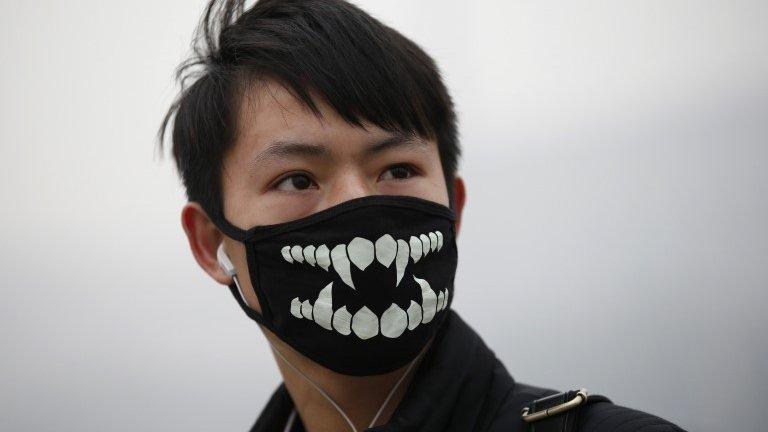Chinese authorities boost smog alert level in Beijing
- Published
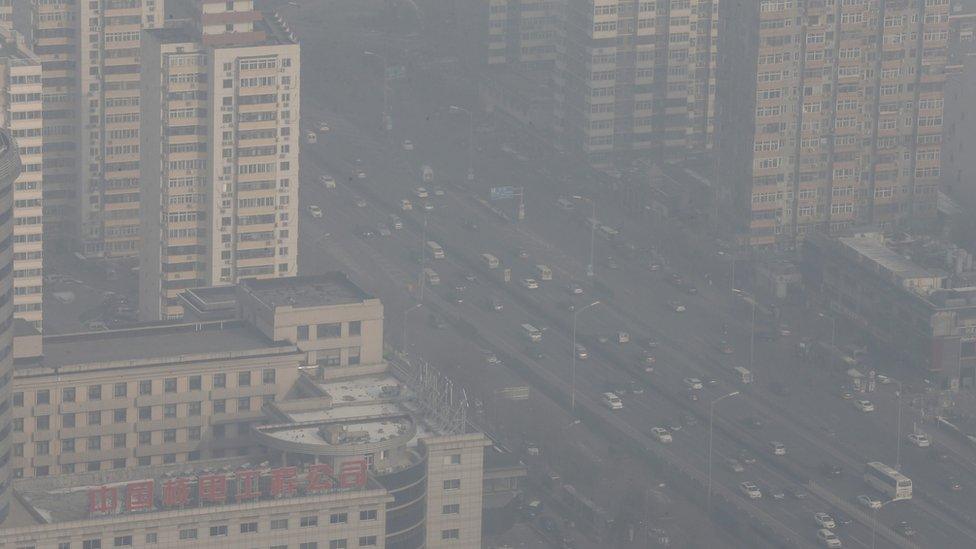
Visibility has fallen to a few hundred metres in places
The authorities in the Chinese capital, Beijing, have issued their highest smog warning so far this year.
The "orange level" alert declared on Sunday is the second highest possible, requiring factories to cut production.
On Sunday, some pollution readings in parts of the city reached about 17 times the level considered safe by the World Health Organisation.
Air pollution is a chronic health-risk for those living and working in the capital and other major Chinese cities.
China's state media says the declaration of this orange level alert requires industrial plants to reduce or shut down production.
Building sites are not allowed to transport materials or waste and heavy-duty trucks are banned from the city's roads.
Some reports suggest that visibility has fallen to a few hundred metres in some places.
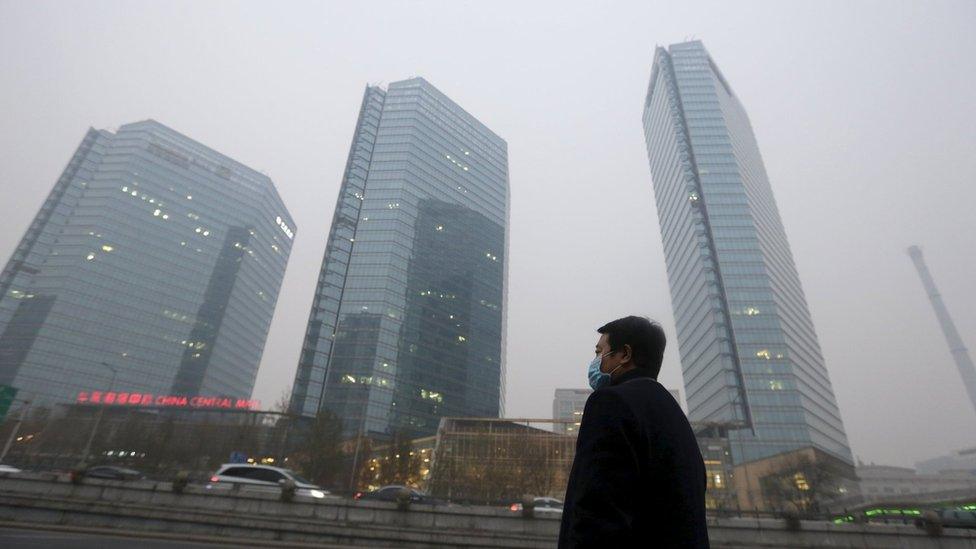
Air pollution is a chronic health risk for city dwellers in China
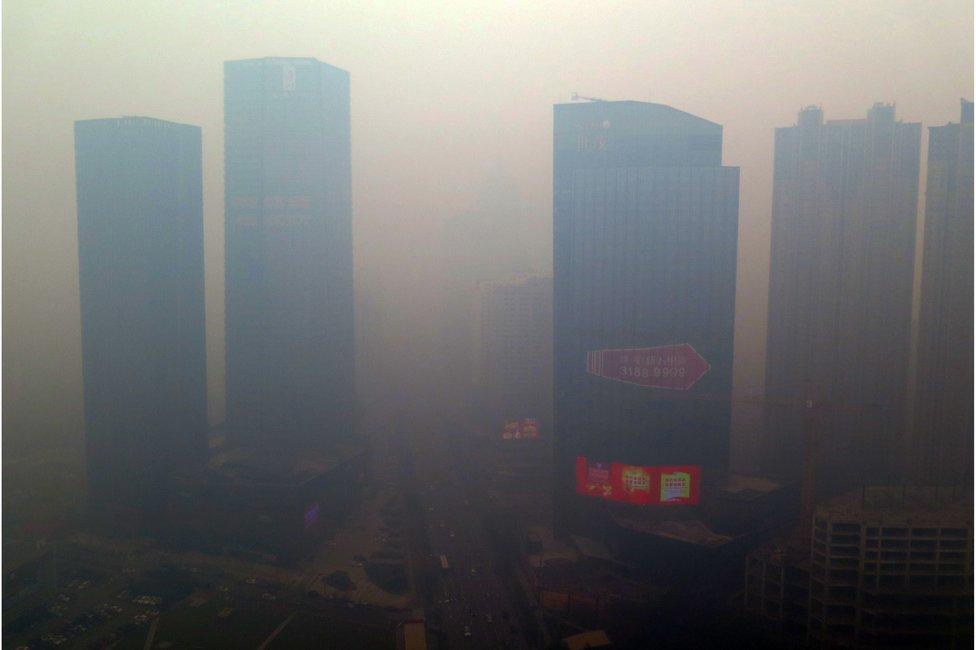
Many cities across China's industrial northeast are affected
At noon on Sunday, the air pollution monitor operated by the US Embassy in Beijing reported that the intensity of the poisonous, tiny particles of PM 2.5 reached more than 400 micrograms per cubic metre in some of the worst-affected areas.
The World Health Organization considers 25 micrograms per cubic metre to be a safe level.
Coal-powered industries and heating systems, as well as dust from construction sites, all contribute to the smog which has been exacerbated by humidity and a lack of wind.
A cold front, expected to arrive on Wednesday, should bring some relief.
Reliance on coal
Air pollution is a perennial problem in China's northeast which is home to many heavy industries including coal mining.
Earlier this month, China's state media and many residents criticised high pollution levels in the north-eastern city of Shenyang.
The People's Daily said PM 2.5 levels exceeded 1,400 micrograms per cubic metre. Activists said that may have been the "worst ever" air quality seen in the country.
Earlier this year China's environment ministry announced that only eight out of the country's 74 biggest cities had passed the government's basic air quality standards in 2014.
Most of the cities found to have the worst air were in the northeast.
China is attempting to cut pollution but still relies heavily on coal for its energy and industrial needs.
- Published3 February 2015
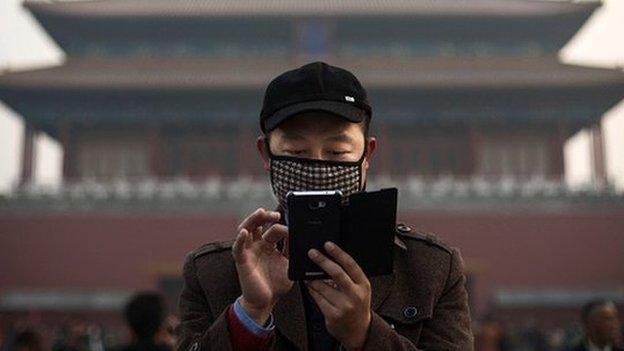
- Published2 March 2015
